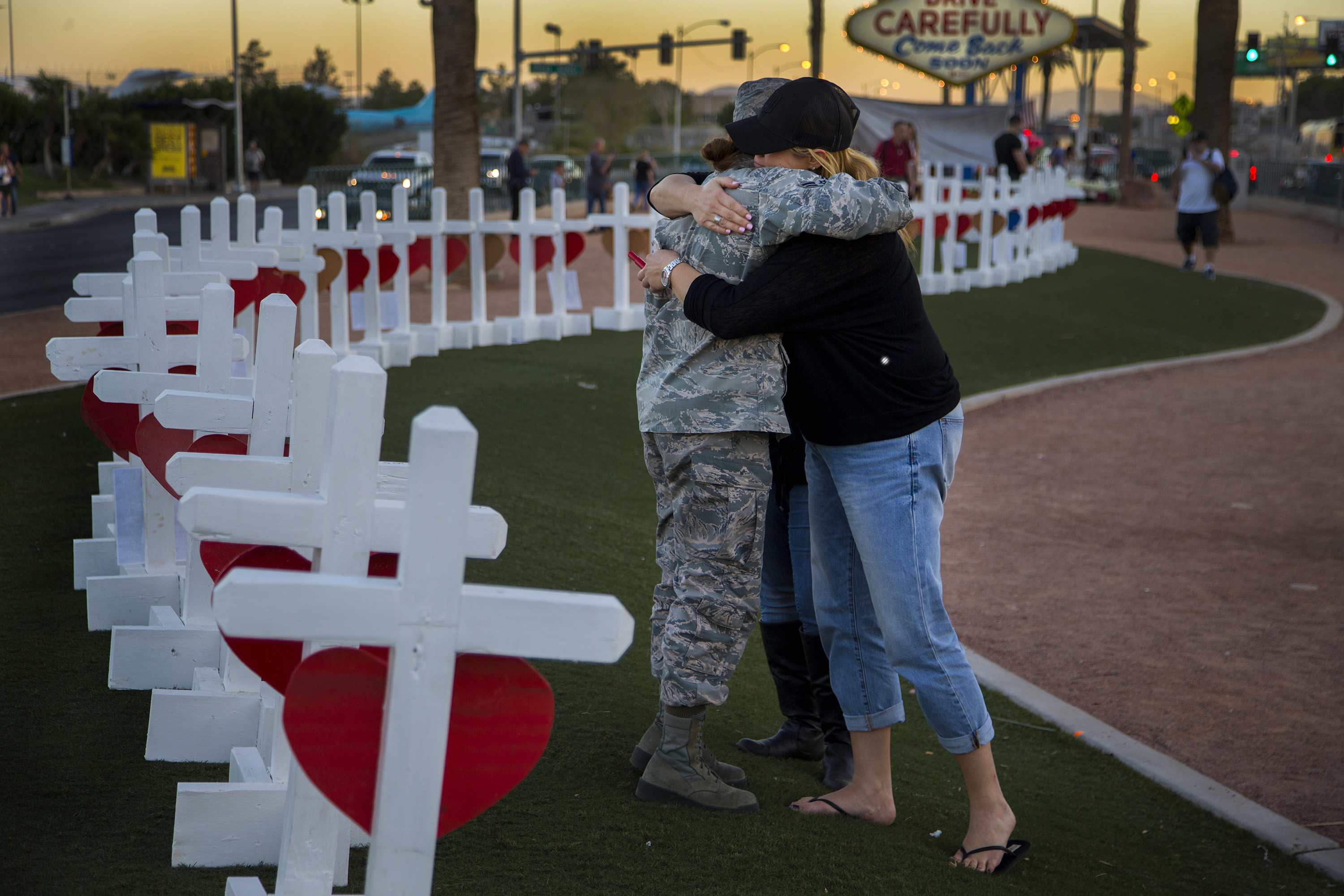
What can we do about Vegas?
As the pundits analyze the Las Vegas shooting, the same questions will be analyzed ad nauseam. What was his motive? What could have prevented this? The answer to this will usually depend on your political orientation. The liberal viewpoint argues that we need to enact strict gun laws, including bans on various types of weapons and gun features. The Second Amendment is not absolute — certain weapons should be illegal, and the rights to carry a weapon should be restrictive. The conservative usually argues that no such laws could ever prevent this from happening, is typically more permissive about which types of weapons can be owned, and argues that any attempt at legislation will only serve to infringe on our rights without making us any safer.
At the core of this conflict is a clash of values. It is a matter of which form of freedom is more important. Is public safety and everyday peace of mind more important than the ability to easily defend yourself and resist potential tyranny? I don’t believe that there is a clear answer to this because both perspectives have merit and are equally valid. They simply value different forms of freedom, and the preference for one or another is deeply ingrained in local culture and personality.
Turning to the Constitution to seek an answer is impossible, because it is a conflict over the core meaning and intent of the Constitution and Bill of Rights. Does the Second Amendment provide freedom for collective defense in the form of an organized militia, or does it also protect independent small arms ownership? If it protects the latter, what types of weapons? The ambiguity in the Constitution means that both sides also have a solid legal basis, meaning that any measure that is taken to prevent another Vegas, Columbine or Newtown must respect both values to be viable or to avoid endless legal disputes.
Firstly, we need to establish a better system for mental health care. Many of the individuals who committed mass shootings were clearly troubled and mentally unstable. They were not fit to own certain firearms, and most Americans (and gun owners) also believe that the mentally ill should not own weapons. Yet the data shows that our mental health systems are failing. One in five Americans suffer from a mental illness, and the gaps in our healthcare system exacerbate that issue. There is a serious shortage of professionals who are trained to address these issues, and poor insurance or lack of insurance wholly ensures that cost remains a barrier to seeking treatment.
Secondly, our background check system is inefficient and has too many loopholes to remain effective. The most notorious one is known as the “gun show loophole,” which only requires background checks on guns sold by commercial dealers while excluding private individual sales. Background checks are supposed to prohibit people convicted of violent misdemeanors and felonies, as well those with serious mental illnesses, from owning a gun. In practice, this system is far from perfect. There is no universal guideline nationwide on what constitutes a serious mental illness or violent crime, so these definitions vary from state to state. Adding to these issues, it is often up to the state government to report these prohibited individuals to the national background check system, and the degree to which this requirement is adhered to depends on the mishmash of state laws and the available resources of each state to do so.
There are many who believe that these proposals are too strict or too lenient. Some would argue that an expanded background check system would violate their right to privacy by giving the government an effective database of gun owners. If every gun sale was required to go through a background check, the government could have a list of who probably has a gun if each check was logged in a database. That concern is legitimate, but there can also be safeguards to ensure that data is not used improperly. The data could be secured through a set of rigorous guidelines like HIPPA — which would only permit a law enforcement agency to access the data if a warrant is obtained from a judge who believes that the data is pertinent to a criminal investigation. Strict criminal penalties or financial punishments could be enacted for those who violate these guidelines.
At the same time, there are some who would advocate that we ban certain types of weapons, such as rifles with military-style features. It is true that some features would make certain weapons more dangerous than others. For example, a long rifle is clearly more effective than a handgun in conducting a mass shooting, and a 100-round magazine is more dangerous than a 20 round one.
However, there are several flaws with this line of reasoning. For one, many of these limitations are easy to avoid. If a limit on magazine sizes were implemented to say, 10 or 20 rounds, the shooter could simply tape two magazines together to reload quickly, effectively doubling the magazine size. If modern military style rifles are banned, then mass shooters will resort to using vintage weapons, such as the Texas shooter who killed several police officers using a SKS, a 70 year old rifle from the USSR. It is impossible to regulate the function of a gun to the point where it is useless in a mass shooting while allowing it to be useful for legitimate purposes. At best, you would reduce the severity of these mass shootings, but they would still occur, and a creative person with ill intent would resort to more unconventional tactics, such as fertilizer bombs, if guns were rendered useless. Directly regulating legal gun ownership because of a few bad actors is not only less effective than ensuring that guns stay out of the wrong hands, but it’s also far more intrusive to our freedoms.


